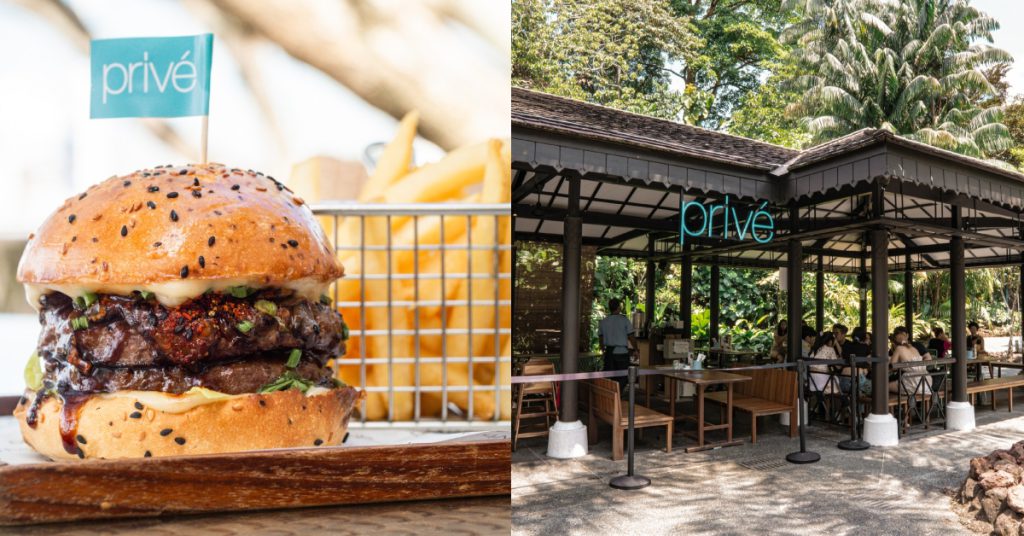Singaporean playwright Alfian Saát has been accused, yet again, of being a “pro-Malaysia activist” by the People’s Action Party (PAP).
On June 19, Jurong GRC MP Dr Tan Wu Meng wrote an article titled “Mr Pritam Singh supports Alfian Saát” and published it on PAP’s website and Facebook page.
The Facebook post has since gone viral, eliciting controversy online — it has since been addressed in Parliament and drawn statements from high-profile individuals.
Alfian Sa’at Is Parliament’s Favourite Topic Of Debate
Aspersions cast on Mr Sa’at’s national loyalties mirror statements issued by then-Minister of Education Ong Ye Kung in 2019.
Answering questions related to the cancellation of a course on ‘’Dialogue and Dissent in Singapore”, taught by Mr Saát in Yale-National University of Singapore (NUS), Mr Ong quoted Mr Sa’at’s work in Parliament.
The minister read selected lines from Mr Saat’s 1998 poem titled “Singapore You Are Not My Country” and accused him of continuing the critical “attitude in the poem consistently in his activism”.
Since possessing a critical attitude about mainstream politics would be the perfect fit for activism and a course on “Dialogue and Dissent,” one wonders why Mr Ong would be so opposed to Mr. Sa’at.

Mr Ong went on to provide examples of when Mr Sa’at conversely displayed support for Malaysian politics, further casting doubt on his national loyalties.
The move elicited backlash online, with veteran diplomat Tommy Koh writing in a Facebook post saying “we should not demonise Alfian Sa’at … I regard him as a loving critic of Singapore. He is not anti-Singapore.”
“Freedom of speech means the right to agree with the Government as well as the right to disagree,” he added.
How Alfian Sa’at Was Used As A Political Proxy
On June 5, Workers’ Party (WP) opposition leader Pritam Singh referenced the 2019 incident during the Fortitude Budget debate in Parliament.
“We should count ourselves fortunate … We have citizens who are loving critics,” he said.
Mr Singh also asked the members of the House to recall how “one citizen’s poems were nitpicked with a view to cast wholly negative aspersions on his character, even though that individual was not present in the House to defend himself.”
Responding to Mr Singh’s revival of the PAP’s attack on Alfian Sa’at in 2019, Dr Tan said that Mr Sa’at is a pro-Malaysian activist, not a “loving critic” of Singapore.
According to Dr Tan, “Alfian has consistently praised Malaysia to illustrate his disdain for Singapore,” and his preferences are “obvious.”
Dr Tan calls for Mr Singh to read Mr Sa’at’s work and questions if he really thinks Alfian is a “loving critic” of Singapore. If he does, perhaps Mr Singh considers himself a “loving critic” of Singapore too, he challenged.
Dr. Tan boldly questions Mr Singh’s national loyalty using Alfian’s “doubtful credentials” as a proxy.

Thanks to the Facebook article alleging that Alfian Sa’at was disloyal to his country, Alfian Sa’at found himself, a civilian, once again caught between the political battles of two far more powerful organisations.
The PAP’s decision to systematically conduct a character assassination on a non-political civilian could be considered a massive abuse of authority.
If bullying is defined as the act of intimidating or harming a more vulnerable individual, conducting a character assassination on a civilian fits the bill — particularly one that was not directly involved in Parliament.
Here’s how Dr. Tan differentiates between loving critics and Pro-Malaysian activists — he considers opposition leaders like Singapore Democratic Party’s Chiam See Tong and WP Low Thia Khang as “loving critics.”
In his words, they “spoke in Parliament, as a patriot would.”
This begs these questions: Does this mean that the millions of Singaporeans who aren’t politicians are not patriots? Is anyone who airs criticism outside of Parliament a pro-Malaysian activist?
Breaking Down PAP’s Allegations
The article used a selection of Mr Sa’at’s literary work and Facebook posts from 2011 to 2018 as evidence.
This includes Mr Saát’s perspectives on the 2018 Johor maritime and airspace dispute, criticisms of Lee Kuan Yew, and thoughts on the Speak Mandarin campaign.
Dr Tan claims that the playwright advocates the adoption of Malaysian Bumiputera policies, Malaysian-style governance, and Mahathir-style democracy to Singapore.
Allegedly, Mr Sa’at also approves of a merger between Singapore and Malaysia.
However, Mr Sa’at’s writings do not explicitly declare his support for the policies and the majority of the evidence lifted from his Facebook page do not logically support any of Dr. Tan’s allegations.
If Mr Sa’at prefers to migrate to Malaysia given the chance, that’s hardly illegal or unethical. Many Singaporeans have migrated overseas, be it to the UK, Australia or New Zealand.
That said, it took quite a leap in logic for Dr. Tan to come to that conclusion.

Another strange interpretation is that Mr. Sa’at wants to import Bumiputera policies into Singapore and believes Singaporean-Chinese are selfish.
He quotes a friend who states that Chinese Singaporeans support meritocracy because it works to their advantage in Singapore. “At the end of the day, self-interest rules,” he said.
Nowhere in this quote does Mr Sa’at declare his support for importing Bumiputera policies into Singapore. He merely criticises the rationale for Singapore-Chinese support of meritocratic systems in Singapore, which he perceives as self-serving.
Another leap in logic.
Lastly, criticism of Lee Kuan Yew in Mr Sa’at’s writings make light of the way the late Senior Minister was treated with near-mythical status and devotion.
Singapore and Lee Kuan Yew are two separate entities. Criticism of the latter does not necessitate disloyalty towards the former.
Dr Tan’s article is riddled with more loopholes, which unfortunately cannot be totally captured in a single section.
Ultimately, a carefully-selected subset of writings hardly represents the entirety of an individual’s political feelings, which can change in during a period as significant as seven years.
Most importantly, a civilian’s political beliefs should not be used to further political battles.
Responses (So Far)
On Sunday (June 21), Law and Home Affairs Minister K. Shanmugam said that Dr Tan had asked a “legitimate question” on whether Mr Singh was aware of Mr Saát’s Facebook posts.
Replying to the article, Mr Singh stated that “should any Singaporean consistently establish that he or she rejects Singapore or our Constitution or runs Singapore down with a political agenda overseas, neither I, nor the WP will stand for such conduct.”
However, Mr Singh also alleged that the article was “politically motivated to divide Singaporeans” and “paints WP in a negative light.”
Mr Singh reiterated his stance that “Singaporeans like Mr Alfian Saát do not deserve to be admonished in parliament on the basis of a selective reading of their words. “
In response to the allegations, Mr Sa’at asserted that he did not “take sides”.
According to the playwright, his intention was simply to offer “alternative views of Malaysia”, motivated by an observation that Singaporean nationalism was built on “a sense of superiority, that at times went close to contempt and hatred … for our neighbouring countries”.
Defending his position, Mr Sa’at stated that “all this talk about my love or loyalty to the country also turns ‘patriotism’ into some kind of supreme virtue, as if everyone’s character must be judged on this and this alone.”
“The composer Pablo Casals has said, “The love of one’s country is a splendid thing. But why should love stop at the border? There is a [fellowship] among all [human beings]. This must be recognised if life is to remain.”
There is certainly no shortage of empathy to be had for Mr Sa’at, who seems to inadvertently find himself to be used as a pawn by political organisations.
If the PAP can run campaigns against cyberbullying online, it should apply the same principles to the treatment of its own citizens.
Featured Image Credit: Political Action Party / Workers’ Party / Wild Rice











